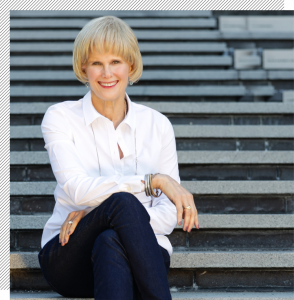The desire to talk up yourself when you’re marketing is irresistible.
Many small business owners, especially coaches and consultants, go about their marketing wrong.
Instead of focusing on their target audience they shout about their talents and phenomenal offer.
It’s a classic instance of a failure to communicate.
Your audience is all ears to be understood. What’s bothering them? How can you help fix that?
But if you just rattle on about your prowess, you’re a turn off. You might as well be talking to the air.
- You’re not meeting your audience’s needs.
- You’re not positioned to help them.
Positioning is the process of establishing an identity and image of your products or services in your audience’s mind.
It’s defining what’s different about you and your offer and why it matters to your prospective customers.
Here are a few examples:
The management tool company Evernote for example speaks directly to people needing to be on top of everything. It’s tagline: “Get organized. Work Smarter. Remember everything.”
Nike’s slogan “Just do it,” speaks to your aspirations. It gives you a reason to believe you can do it.” It’s not just any athletic shoe company but one that appeals to your desire to score.
Clients will say to me: “I’m positioned. See my shiny new logo or website.”
They have put the cart before the horse.
How can you have a website when you don’t know what you stand for?
How can your logo distinguish you when you’re not yet distinctive?
For small business, positioning is especially important because it helps build brand awareness and establishes credibility.
It helps you compete against bigger companies and differentiate yourself.
How do you position yourself?
Here are 5 key ways to do so:
- Begin with a thorough understanding of your target audience. What do they need? What are they struggling with? How can your offer help them?
- Analyze your competition. What are they doing right? What can you do better? Is there something missing? Can you fill the gap?
- Pay attention to the words your customers and prospects use. Do they say they are “burnt out,” or “unfocused,” or “stressed out,” or “treading water”? Use some of their words in your messaging.
- Create a distinctive offer. Don’t just be a business coach for example but one with a special process that helps relieve a problem that’s keeping your prospects up at night.
- Don’t overcomplicate the issue. People don’t want to struggle to find their way amid a mass of words. Explain with clarity what you do and why anyone should care.
How are you positioning yourself? Share in the comments.






